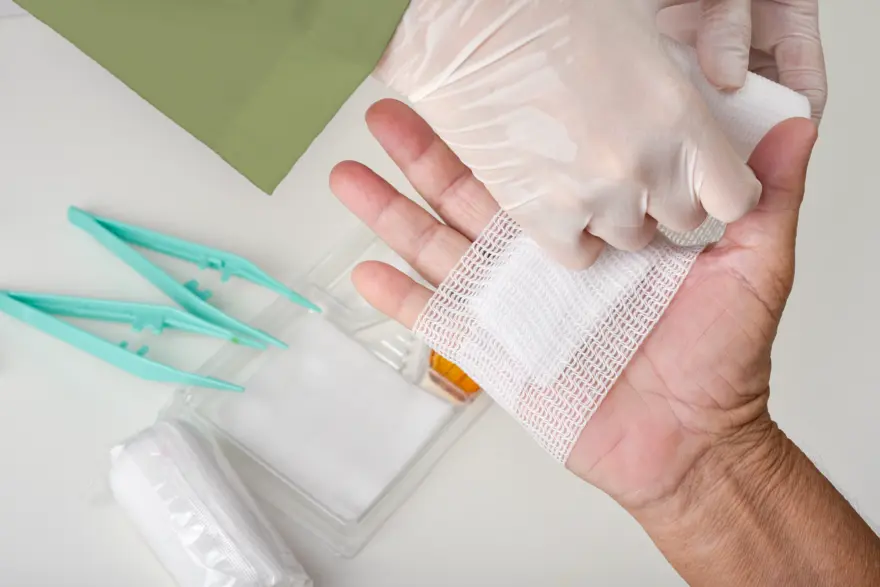
Wound care is a type of healthcare service that involves the management and treatment of various types of skin and soft tissue injuries, such as cuts, burns, pressure ulcers, and surgical incisions. Our goal is to promote wound healing, prevent infections, and improve the overall health and well-being of the patient.
Our services are provided by licensed healthcare professionals, such as nurses or wound care specialists, who are thoroughly trained in the assessment and management of wounds. Our staff use well established wound care techniques to promote healing and prevent infections and other complications.
It is important to seek professional wound care services from licensed healthcare professionals, as improper wound care management can lead to infections, delayed healing, and other serious complications.
Wound Care
Wound care is essential for a quick healing process and to prevent scars. For a quick healing process and no spots. With expert advice, you can easily treat little wounds; all you have to do is obey the following instructions:
Treatment
After the injury, immediately wash your wound thoroughly with clean water and mild soap. Remove any visible dirt or debris from the damage and apply gentle pressure to stop bleeding.
Run cold water over the area for burn wounds or apply a cool, wet cloth. If blisters form, do not pop or drain. Apply a thin layer of bacitracin antibiotic ointment or white petroleum to the wound. Cover with a bandage.
Clean the area twice daily with soap and water and apply a new bandage and ointment after cleaning. There is no need to use hydrogen peroxide or alcohol for cleaning. Continue this care until the wound is fully healed.
We can add embedded wounds likely caused by sharp objects. Do not pull the sharps inside the damage because it might cause severe bleeding and injury. Instead, apply pressure to stabilize it and go to the nearest hospital.
Tetanus Immunization
Tetanus is an uncommon but serious infection that can occur after a skin injury. Derby recommends that all individuals receive three tetanus vaccinations, usually given during infancy, and a booster shot every ten years. Some punctures or dirty wounds require a tetanus booster if it has been more than five years since the last tetanus shot.
Signs of Healing
Almost as soon as you get a cut or scrape, your body creates a protective mesh around it. White blood cells attack infection-causing bacteria. Platelets, red blood cells, and fibrin produce a jelly-like clot over the wound, and soon protective scab forms. If your damage gets itchy, be gentle — you want that scab to stay where it is.
See a Doctor About a Wound That
- Won’t stop bleeding after 5-10 minutes of pressure.
- It is deeper or longer than a half-inch.
- It is near the eye.
- Is it gaping or ragged?
- It is caused by something rusty.
- It has dirt or gravel stuck in it.
- It is excruciating.
- It is showing signs of infection.
- An animal or human bite
Also, see a doctor if you aren’t sure you’re up to date on your tetanus vaccine.
Derby Homecare brings wound care services directly to people’s homes, eliminating the need for patients to travel and queuing. This convenience is particularly beneficial for individuals with mobility issues, chronic illnesses, or those who prefer the comfort of their environment.
It saves time, reduces transportation challenges, and allows individuals to receive professional medical care from DHA ( Dubai Health Authority) certified medical team in the safety and convenience of their place.

